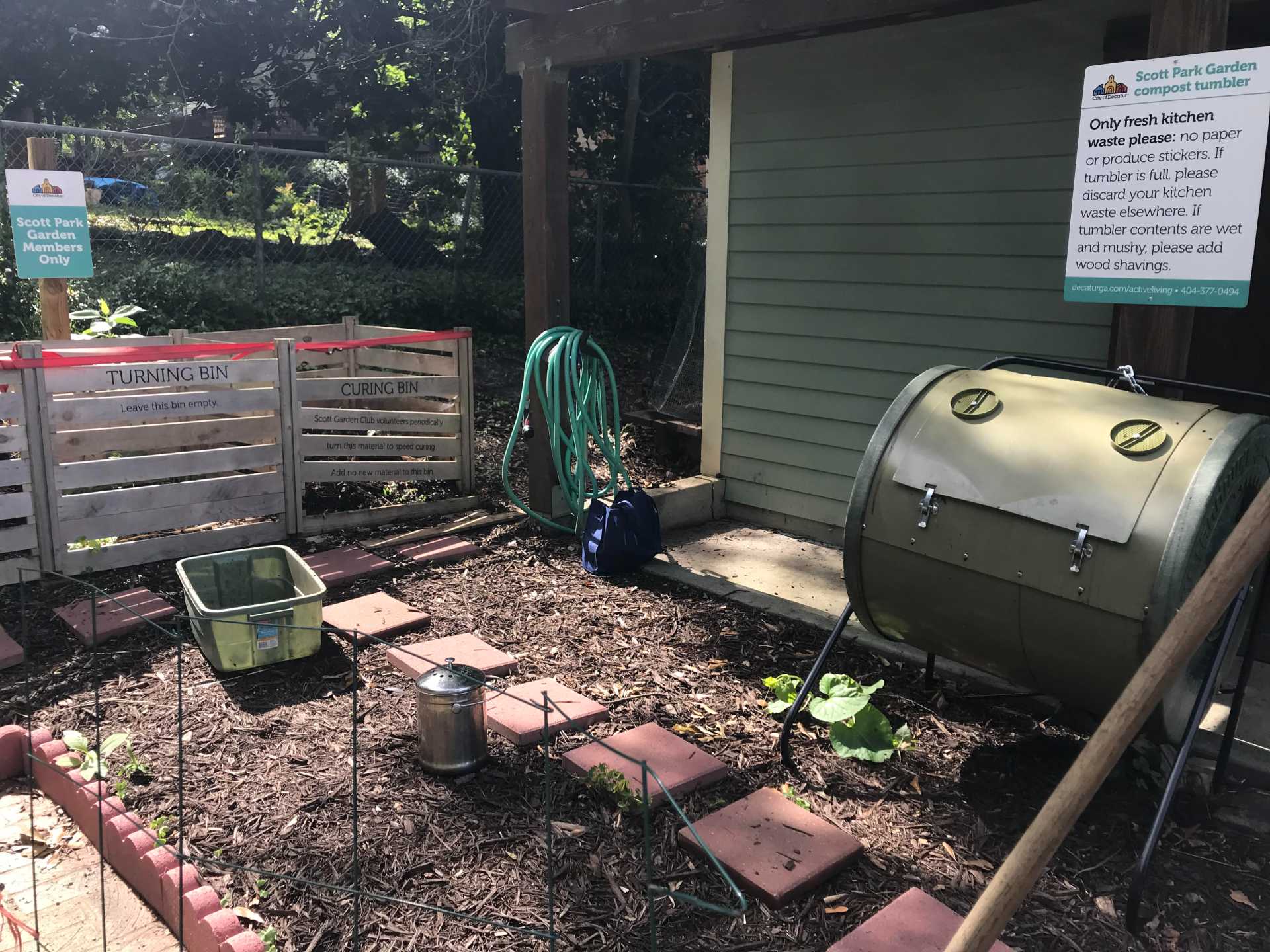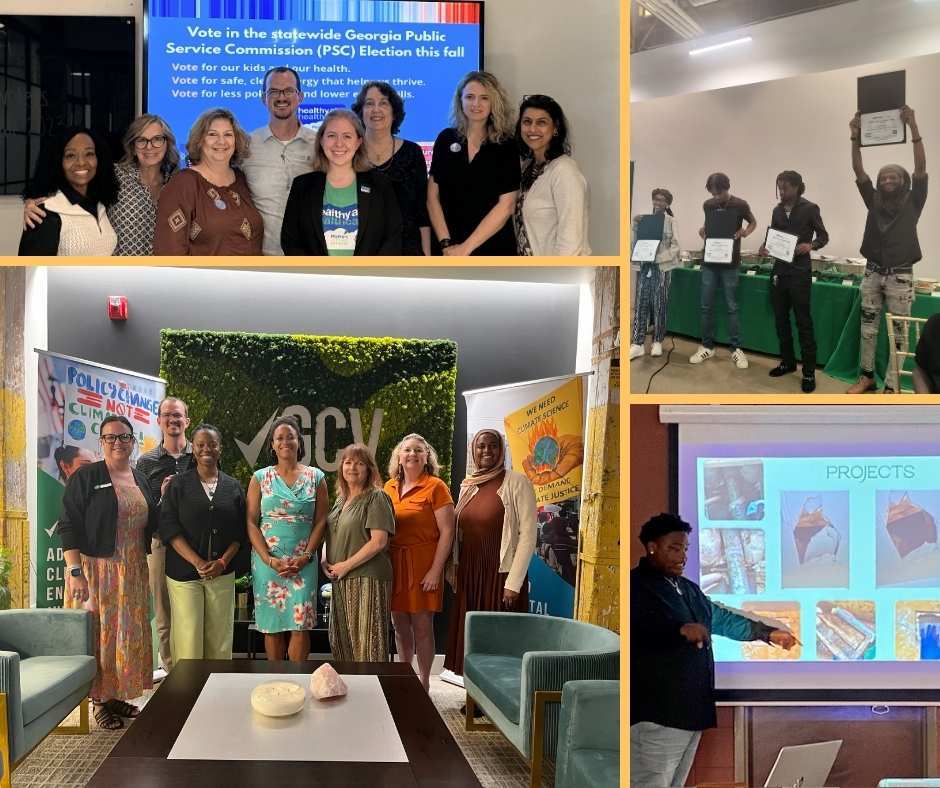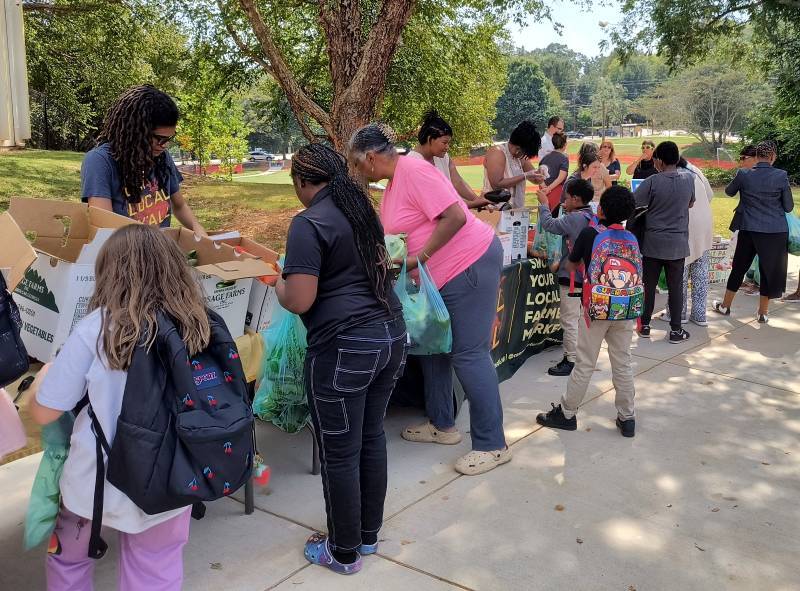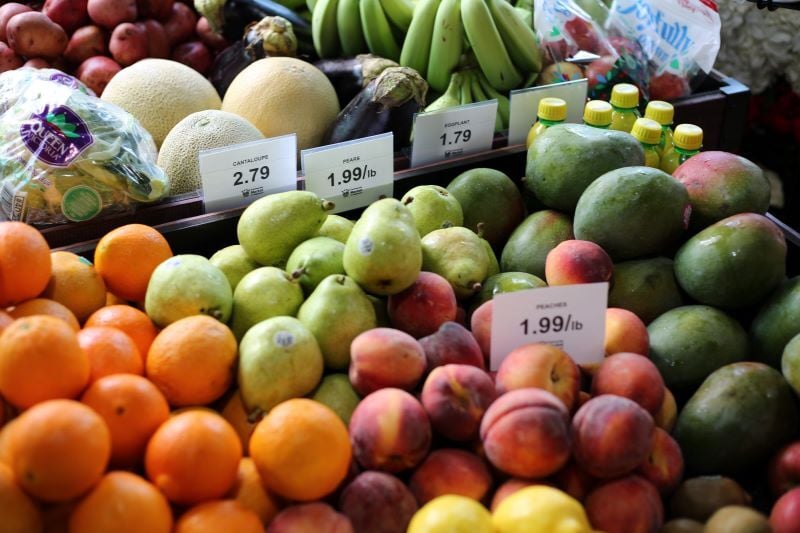Vehicles account for 43% of Georgia’s CO2 emissions. Transporting people and products makes sense, but much of what we transport is trash. Sanitation work remains an important essential business, but not all of our garbage belongs in a landfill.
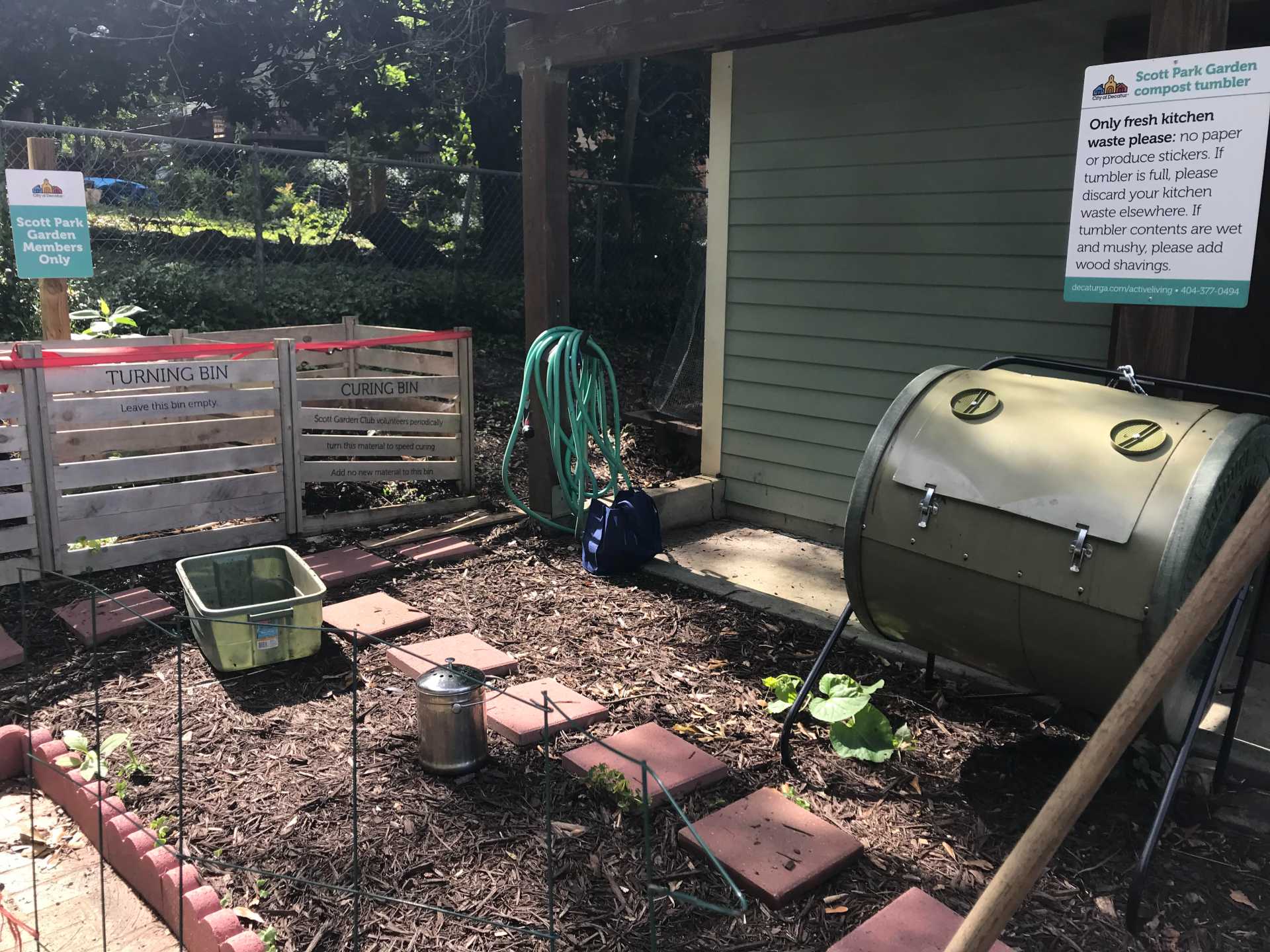
Pictured above is the composting system at the Scott Park Community Garden in Decatur, Ga.
Food waste comprises 12% of municipal solid waste in Georgia, which translates to 800,000 tons per year. While a map of composting facilities in Georgia shows alternatives to landfills, it also shows that there is nothing close to the most populated area, Atlanta, which is responsible for half of the state’s food waste.
In the United States, food is most commonly wasted at the consumption stage (rather than the production, processing, distribution, and retail stages), which means that tackling food waste closer to homes and restaurants is an important step to combatting the carbon footprint of wasted food.
You may be thinking that dealing with food waste requires lots of land, equipment, and labor, which translates to high costs. If handled through centralized operations, these concerns are completely valid. However, sustainability doesn’t have to be expensive or centralized. Rather than spending resources on transporting waste away to be processed or buried, we should be using it as close to sources as possible. Recovering these nutrients and energy can be done through very specific and simple actions by leveraging efforts within our own communities.
Composting combats food waste by producing soil amendments to fertilize the land, which is especially helpful for food production. Composting also reduces carbon footprints through decreases in transportation and landfill emissions. Additionally, composting creates opportunities for sustainable jobs and civic community collaborations. Small-scale composting operations, such as through community gardens and commercial facilitators, enable local solutions with big impacts.
Think about apartment complexes, nursing homes, schools, hospitals, and malls. These settings harbor highly concentrated volumes of consumer food waste that pay for trash pick-ups on a regular basis. These organizations also pay for landscapers to keep these environments pleasant for residents and patrons. If these buildings had small-scale, on-site composting, they could save money on disposal costs and also on fertilizer costs for landscaping because they would be producing their own on-site. This two-fold economic impact could easily fund contract workers to help maintain the compost system, as it does not require daily maintenance if people are properly educated on how to use it. Unfortunately, composting is not yet standard practice for business operations. But if recycling can become a norm, so can composting.
One important step to establishing composting is to ask your places of residency, work, worship, and leisure what they are doing to address food waste. Now, I know what you may be thinking: “I don’t want a bunch of garbage around me! It’s going to smell horrible, and won’t that attract rats?!” Not-in-my-backyard (NIMBY) syndrome is a very real social barrier but, in some cases, it is based on perceptions rather than reality. Compost does not smell or attract vermin when it is done correctly. If you’ve had experiences with odor and critters, it’s likely because there was something amiss, such as a flawed structure, an imbalance of carbon and nitrogen materials, or not enough moisture or aeration.
We don’t all have the time, energy, and knowledge it takes to build and maintain a composting system. Figuring all this out can be extremely daunting. But we all have communities, personal and professional. Search for a community garden near you or start one with your neighbors. That’s the benefit of a community— You don’t have to know everything because someone in your community probably already does, or at least knows someone who can help.
Fortunately, taking advantage of natural biological processes is a sustainable and fun activity. Lots of really interesting things happen in compost systems; the spectacular combination of microbes, invertebrates, water, heat, air, and time create nothing short of magic. Contributing to and watching the process is incredibly rewarding. If you don’t believe me, go visit a community compost system and see for yourself— and don’t forget to bring the kids because they will love it! For example, roly-polies are common critters in compost and they actually extract heavy metals, like lead, cadmium, and arsenic, out of the soil. Lots of insects contribute to important ecological processes in compost, so if you see a bug in your bin, let it be!
Climate change issues are overwhelming and can easily discourage people from getting involved. However, if we all do little, intentional actions in our daily lives and encourage action from others, we can help stimulate change within our personal and professional communities. These seemingly small actions ripple out to create a significant impact around the world. So, I encourage you to get curious and get active when it comes to what you throw away. After all, it’s called a garbage can, not garbage cannot!


